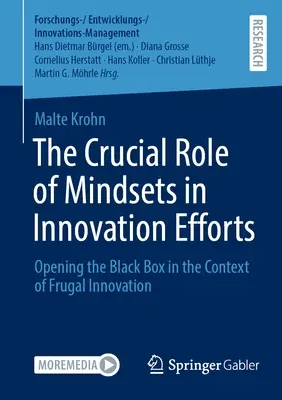Malte Krohn
(Author)The Crucial Role of Mindsets in Innovation Efforts: Opening the Black Box in the Context of Frugal Innovation (2022)Paperback - 2022, 1 December 2022

Qty
1
Turbo
Ships in 2 - 3 days
In Stock
Free Delivery
Cash on Delivery
15 Days
Free Returns
Secure Checkout

Part of Series
Forschungs-/Entwicklungs-/Innovations-Management
Print Length
234 pages
Language
English
Publisher
Springer Gabler
Date Published
1 Dec 2022
ISBN-10
3658399694
ISBN-13
9783658399696
Description
Product Details
Author:
Book Edition:
2022
Book Format:
Paperback
Country of Origin:
NL
Date Published:
1 December 2022
Dimensions:
21.01 x
14.81 x
1.35 cm
ISBN-10:
3658399694
ISBN-13:
9783658399696
Language:
English
Location:
Wiesbaden
Pages:
234
Publisher:
Weight:
308.44 gm